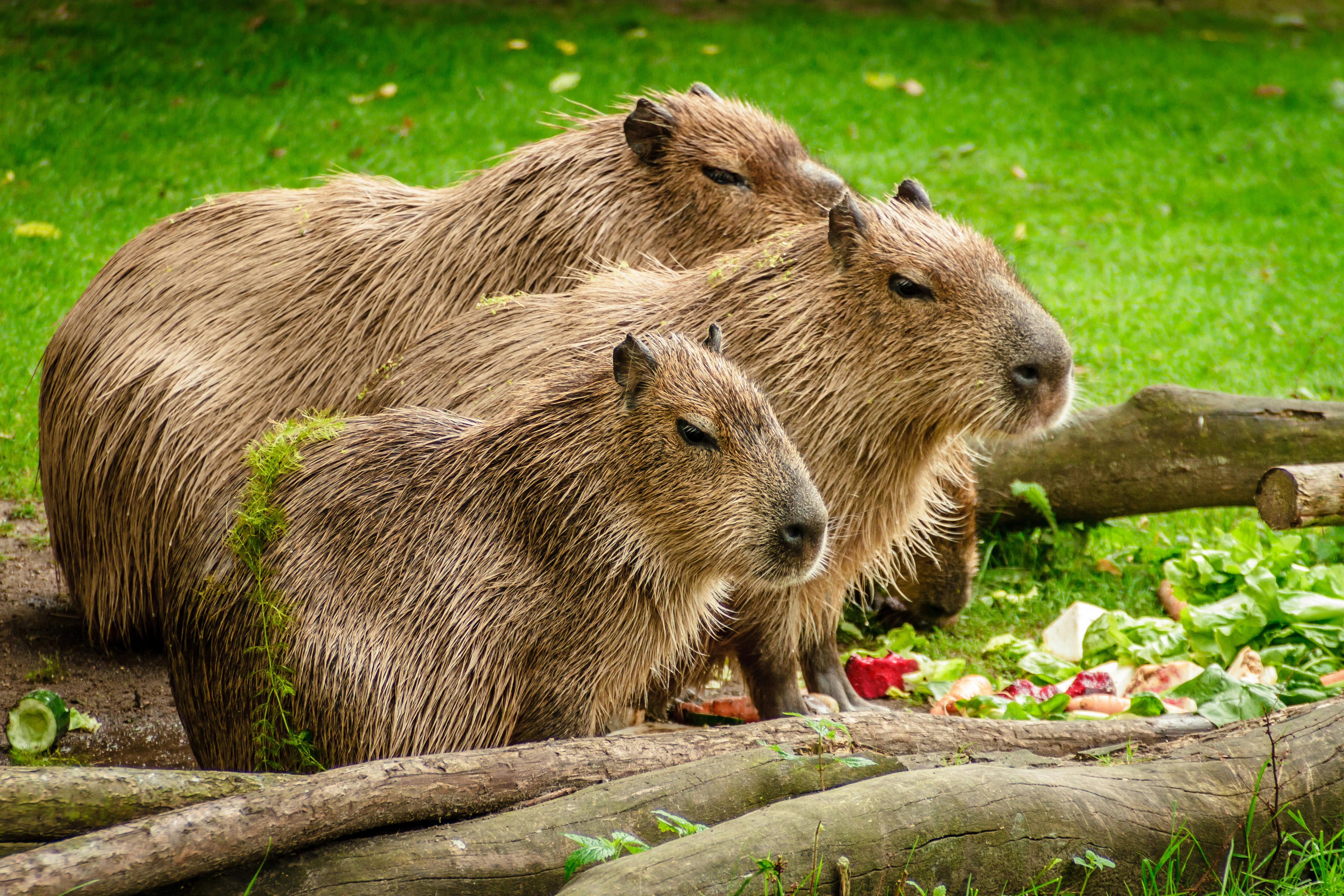The Surprising World of Capybara Companionship
Imagine a pet that's part guinea pig, part hippo, and all charm. Enter the capybara, the world's largest rodent, now making waves as an unconventional yet captivating companion animal. This article delves into the fascinating realm of capybara ownership, exploring the unique challenges and joys of sharing your life with these gentle giants.

The trend of capybara companionship began in the early 2000s, primarily in regions where exotic pet ownership was less regulated. As social media platforms emerged, videos and images of these charming creatures lounging in bathtubs or interacting with other pets went viral, catapulting capybaras into the spotlight of exotic pet ownership.
The Capybara Lifestyle: More Than Just a Large Rodent
Capybaras are semi-aquatic animals, requiring a habitat that includes both land and water. Prospective owners must be prepared to provide a large outdoor enclosure with a pool deep enough for swimming. These social creatures thrive in groups, often forming strong bonds with their human caretakers and other animals.
Their diet consists primarily of grass, but they also enjoy fruits, vegetables, and specially formulated pellets. Capybaras are known for their constant grazing, which means a steady supply of fresh vegetation is essential. Their unique digestive system, similar to that of cows, allows them to extract maximum nutrients from plant matter.
Legal and Ethical Considerations
The legality of capybara ownership varies widely by location. In some areas, they are classified as exotic pets and require special permits. Other regions prohibit their ownership entirely. Prospective owners must thoroughly research local laws and regulations before considering a capybara as a pet.
Ethical concerns surrounding capybara companionship are significant. These animals have complex social and environmental needs that can be challenging to meet in a domestic setting. Critics argue that capybaras belong in their natural habitats or specialized sanctuaries rather than private homes.
Health and Veterinary Care
Finding a veterinarian experienced in capybara care can be a significant challenge. These animals require specialized knowledge and treatment protocols that differ from those of common household pets. Regular check-ups, vaccinations, and dental care are essential for maintaining a capybara’s health.
Capybaras are prone to certain health issues, including dental problems due to their continuously growing teeth, skin conditions exacerbated by inadequate access to water, and stress-related ailments if their social and environmental needs are not met. Proper preventative care and a deep understanding of capybara physiology are crucial for their well-being.
The Financial Commitment
Owning a capybara is a significant financial undertaking. The initial cost of purchasing a capybara can range from $1,000 to $3,000, depending on the breeder and location. However, this is just the beginning of the investment.
Creating and maintaining a suitable habitat can cost thousands of dollars, including fencing, pool installation, and ongoing maintenance. Food expenses are considerable, given their constant grazing habits and need for a varied diet. Veterinary care, often requiring exotic animal specialists, can be particularly costly.
Social Dynamics and Behavioral Traits
Capybaras are highly social animals with complex behavioral patterns. In the wild, they live in large groups, and this social nature translates to their interactions in captivity. They often form strong bonds with their human caregivers and can be affectionate and gentle.
However, their social needs can also present challenges. Capybaras may become stressed or depressed if left alone for extended periods. They require consistent interaction and mental stimulation. Some owners have found success in pairing capybaras with other animals, such as dogs or goats, to provide companionship.
Environmental Impact and Conservation
The growing trend of capybara companionship raises questions about its impact on wild populations. While most pet capybaras are bred in captivity, increased demand could potentially lead to illegal wildlife trade. Conservation experts stress the importance of supporting capybara populations in their natural habitats rather than promoting them as pets.
On the flip side, some argue that responsible capybara ownership can raise awareness about these unique animals and their ecosystems. Owners often become passionate advocates for capybara conservation, using their experiences to educate others about the species and the importance of protecting their natural habitats.
The Future of Capybara Companionship
As the trend of exotic pet ownership continues to evolve, the future of capybara companionship remains uncertain. Increased regulation and a growing understanding of these animals’ complex needs may lead to more stringent ownership requirements or outright bans in some areas.
However, the allure of these gentle giants persists. For those who can provide the extensive care and resources required, capybaras offer a unique and rewarding companionship experience. As research into their behavior and needs in captivity continues, best practices for capybara care are likely to evolve, potentially making responsible ownership more accessible.
In conclusion, capybara companionship represents a fascinating intersection of exotic pet ownership, animal welfare considerations, and human-animal bond. While not suitable for everyone, these remarkable creatures continue to captivate and challenge our understanding of what it means to share our lives with animals.





